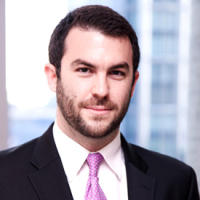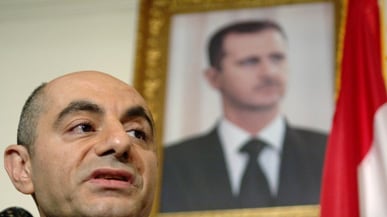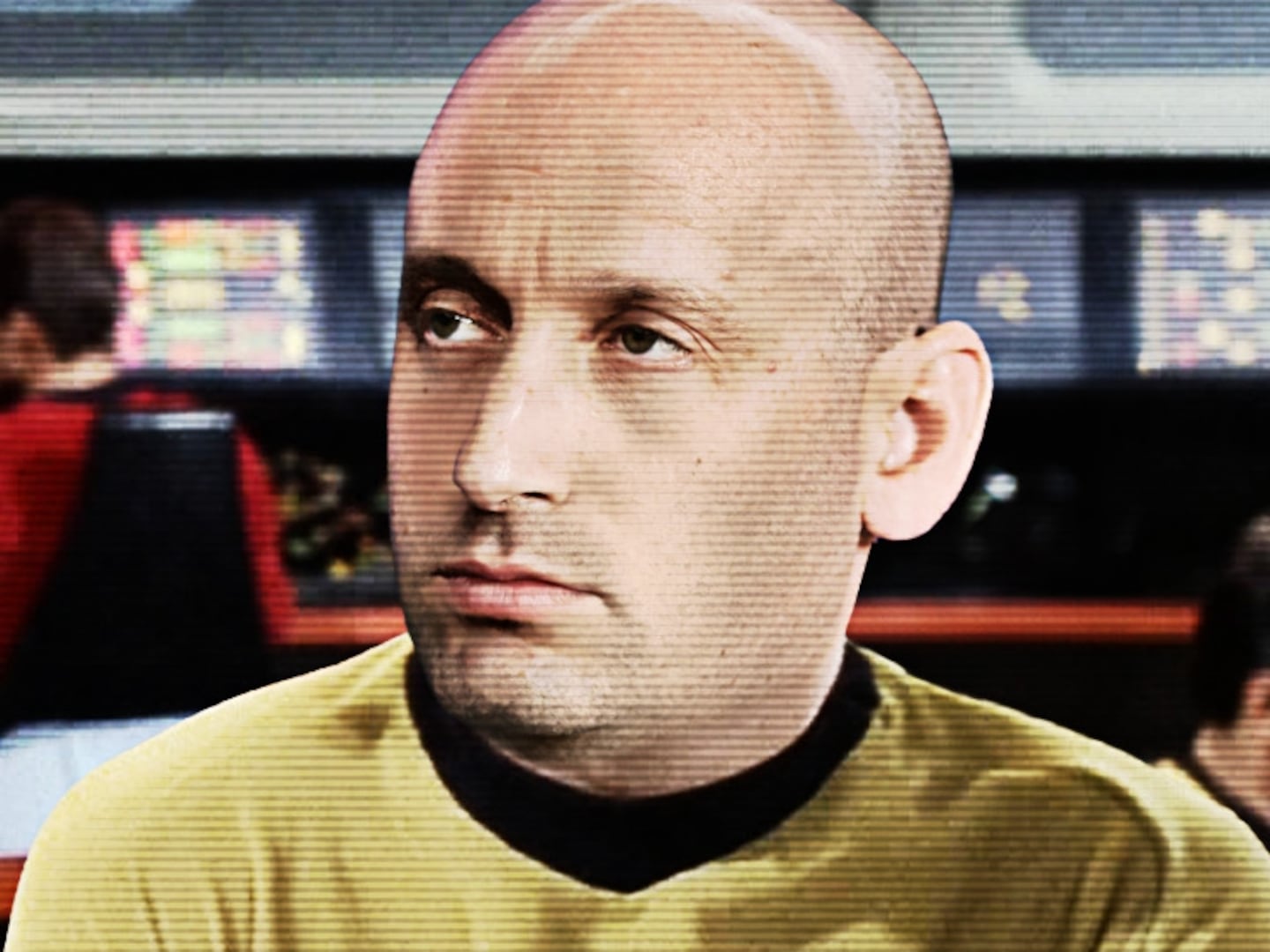In addition to being a blogger and amateur art critic, Imad Moustapha happens to be Syria’s ambassador in Washington. Representing one of the most brutal dictatorships in the Middle East isn’t easy these days, particularly after hundreds of protesters were killed by Syrian forces. Moustapha dedicated his most recent blog post to the “ martyrs of Deraa,” the city where most of the killings took place, though curiously he ascribed no blame for their deaths.

Instead, he wrote that during times of sadness he seeks comfort in works of great art and literature. Dostoyevsky, Mahler and Shostokovich are among his favorites, but it is the 9th century Muslim philosopher, Al Kindi, that has captured his attention in recent weeks.
Moustapha once said that he is more proud of being called a blogger even than being called an ambassador, which is ironic, given Syria’s history of draconian Internet repression. Some months ago, I asked Moustapha if he ever found it hard--as a blogger--to represent a regime which banned Facebook and imprisoned bloggers like Kareem Arabji, Ahed Alhendi and Osama Musa? After a rambling and incoherent response, he came to the heart of the matter. “If you look at the crimes committed by the United States in Iraq, abuses in Syria are nothing in proportion.”
"But you're a Syrian ambassador” I replied, “so what concerns me is Syria--not America, not Israel and not anywhere else."
"What concerns me," he shot back in a mocking tone "is a macro look at what is happening in the region. War crimes have been committed by Israel for 60 years.” A standard Moustapha diversion. “I cannot understand,” he continued, “why people would be upset about one or two [Syrian] individuals here and there, while wide scale abuses are occurring with very little reaction."
Moustapha then chuckled aloud as he told me that the real man behind the 1982 Marine barracks attack that killed 241 U.S. servicemen was not Hezbollah mastermind Imad Moughniya but rather the late pop star Michael Jackson.
My Syrian friends were not shocked at this exchange. How offensive and sad, they told me, to refer to “one or two individuals here and there" to describe a system of repression, censorship and torture that strikes fear into almost every Syrian heart.
"You have said that you are immensely proud of Hezbollah's achievements” I said to the ambassador. “I'm sure you know that until 9/11, Hezbollah killed more Americans than any other terrorist group in the world. Are you equally as proud of that?"
"Give me an example of where they killed an American" he replied.
"Well, they killed 241 in Lebanon."
He smirked and questioned how I knew this. "Don't believe the Israeli propaganda” Moustapha said.
I explained that Imad Mughniya was widely suspected of the attack and he was a senior figure in Hezbollah.
"Who told you Imad Mughniya was responsible?” he continued. “I'll tell you who did the attack. It was the late...what's the name of that singer? [Michael] Jackson" he said chuckling aloud.
American policy makers might take a different approach to Syria if they spent more time talking with dissidents and less time listening to diplomats. Days ago, for example, Secretary of State Hillary Clinton made baffling comments about the Syrian dictator. “There is a different leader in Syria now, many of the members of Congress of both parties who have gone to Syria in recent months have said they believe he’s a reformer” she said.
A reformer compared to whom? Bashar’s father who slaughtered tens of thousands in a single city? Certainly the bar cannot be set so low that a tyrant who commits a mini-massacre is actually seen a reformer.
Six years after the U.S. withdrew its ambassador to Syria following the assassination of former Lebanese Prime Minister Rafiq Hariri, the Obama administration dispatched Robert Ford to restore full diplomatic relations. This seems to have been part of a deliberate U.S. policy of courting the Syrian regime.
Given that the Syrian government has now killed hundreds of peaceful protesters, many dissidents are asking what price their government should pay. A good start would be evicting the silk-tongued Imad Moustapha, the dictator’s leading apologist, from the U.S. He has made a career of explaining the unexplainable; In 2005, to cite just one example, I asked Moustapha how Syria could be a friend of America when it openly supported Hezbollah. “Do we support Hezbollah or do we not support Hezbollah is irrelevant,” he shot back angrily.
Americans should rightly be baffled that supporting a terrorist group that holds mass rallies shouting “Death to America!” is irrelevant. If Moustapha is sent packing for Syria, he will have plenty of time to visit the “martyrs of Deraa” and speak with his fellow bloggers who are currently in prison. He can even continue laughing about Michael Jackson blowing up the Marine barracks. But not on U.S. soil.
David Keyes is the executive director of Advancing Human Rights and co-founder of CyberDissidents.org. You can reach him at david.keyes@advancinghumanrights.org.






